Directed by Amjad Al Rasheed | Starring Mouna Hawa, Haitham Omari, Yumna Marwan, and Salwa Nakkara 🏆 Opening Film o
🏆 Opening Film of Jordanian Showcase at the 35th Carthage Film Festival
The groundbreaking Jordanian film “Inshallah a Boy” by director Amjad Al Rasheed takes center stage at the 35th Carthage Film Festival, as part of the “Cinema Under the Spotlight” section, which highlights the evolution and diversity of Jordanian cinema. This curated program features a total of 12 films, including feature-length dramas, documentaries, and short films, showcasing Jordan’s rising cinematic talent and storytelling depth.
Awards and Global Recognition
Since its world premiere, Inshallah a Boy has captured international attention, earning awards and accolades, including:
- Jean Foundation Award and Rail d’Or Award at the Cannes Film Festival (2023) under Critics’ Week, marking the first Jordanian feature to compete in the festival’s history,
- Audience Award at the Amman International Film Festival,
- Recognition at over 100 international festivals, including the Karlovy Vary International Film Festival, Melbourne International Film Festival, London Film Festival, and Toronto International Film Festival.
The film’s compelling narrative and sensitive exploration of gender and inheritance have earned it over 26 awards, solidifying its place as a landmark in Jordanian and Arab cinema.
The Story: A Woman’s Fight for Justice
Set in modern Jordan, Inshallah a Boy follows the story of Nawal (portrayed by Mouna Hawa), whose life is turned upside down when her husband unexpectedly passes away. In a society governed by strict inheritance laws, Nawal faces the imminent loss of her home and livelihood to her husband’s male relatives, as her only child is a daughter.
In a desperate bid to protect her daughter and retain custody, Nawal makes a bold claim: she is pregnant with a son. This lie, born out of survival, sets off a chain of events that forces her to confront deeply ingrained patriarchal norms and the societal pressures that dictate a woman’s worth.
A Showcase of Jordanian Cinema
The “Cinema Under the Spotlight” section at Carthage features 12 films that highlight Jordan’s cinematic diversity and cultural richness. The selection includes:
Feature-Length Dramas
- “Inshallah a Boy” – Directed by Amjad Al Rasheed (2023)
- “Theeb” – Directed by Naji Abu Nowar (2014)
- “Daughters of Abdul-Rahman” – Directed by Zaid Abu Hamdan (2021)
- “Al-Hara” – Directed by Bassel Ghandour (2020)
- “Farha” – Directed by Darin J. Sallam (2021)
- “Blessed Benefit” – Directed by Mahmoud Al Massad (2016)
Feature-Length Documentaries
- “Oh My Beloved Land” – Directed by Sarine Harbadian (2023)
Short Dramas
- “And He Created Them Male and Female” – Directed by Ahmad Alyaseer (2023)
- “Al Harsh” – Directed by Firas Taybeh (2023)
- “Stillness” – Directed by Dina Naser (2023)
- “The Red Sea Cries” – Directed by Fares Rajoub (2023)
- “Taruida” – Directed by Mony Abu Samra (2023)
This curated selection celebrates the voices of Jordanian filmmakers, offering a platform to showcase their unique narratives and perspectives.
A Film Rooted in Reality
Director Amjad Al Rasheed drew inspiration from real-life stories of Jordanian women who have faced similar struggles. “I heard these stories often from people around me,” Rasheed shared. “These situations are so common that when I discussed the idea for the film, almost everyone had a personal connection to it—something that happened to their sister or neighbor.”
The film also resonates with audiences beyond Jordan, as its themes of gender inequality and patriarchal injustice are universal. After its premiere, a woman from the UAE approached Rasheed, saying, “This is my story.”
Filmmaking Excellence
Filmed in Amman with the support of the Royal Film Commission of Jordan, Inshallah a Boy showcases the natural beauty and cultural richness of Jordan, from its vibrant cityscapes to its deeply rooted traditions. The collaboration with co-writers Delphine Agut and Rola Nasser brought an international perspective to the storytelling, further enhancing its universal appeal.
A Turning Point for Jordanian Cinema
“Inshallah a Boy” not only exemplifies the evolution of Jordanian cinema but also represents a cultural shift in Arab storytelling. By tackling complex issues such as inheritance laws, gender inequality, and societal pressures, the film sheds light on deeply rooted challenges while celebrating the resilience of women navigating these struggles.
Its success at the Carthage Film Festival is a testament to the growing recognition of Jordanian filmmakers, who are now crafting stories that resonate globally while remaining deeply rooted in their cultural context. Through films like Inshallah a Boy, Jordanian cinema has become a platform for powerful narratives that challenge conventions and spark meaningful dialogue about societal transformation.
The film also highlights the collaborative efforts within Jordan’s burgeoning film industry. Supported by the Royal Film Commission of Jordan, which fosters local talent and attracts global productions, Jordanian filmmakers are bringing authentic and compelling stories to the world stage.
This milestone reflects the potential of Jordanian cinema to redefine Arab storytelling, positioning it as a significant contributor to global cinema. Inshallah a Boy serves as a beacon for the next generation of filmmakers, proving that deeply personal yet universally relevant stories can achieve both critical and cultural impact.
Sari Albeder – Carthage Film Festival 2024 – #JCC2024
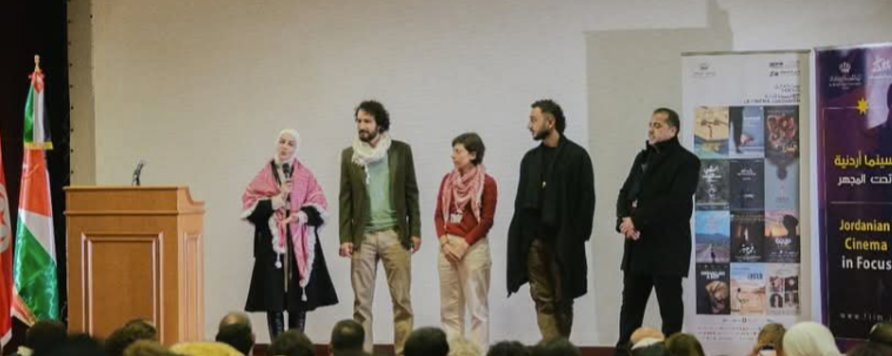
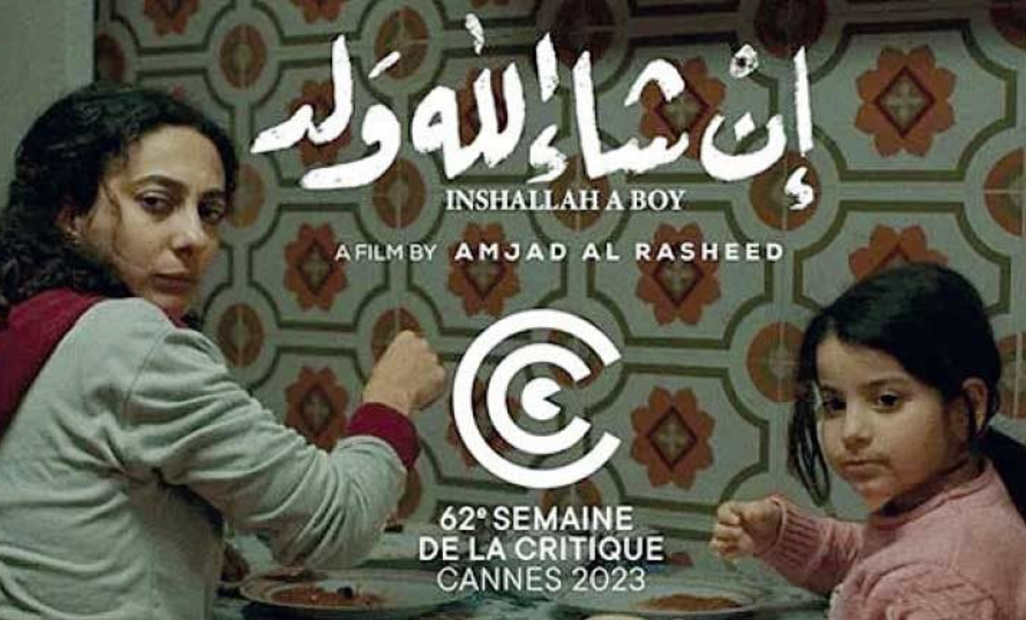
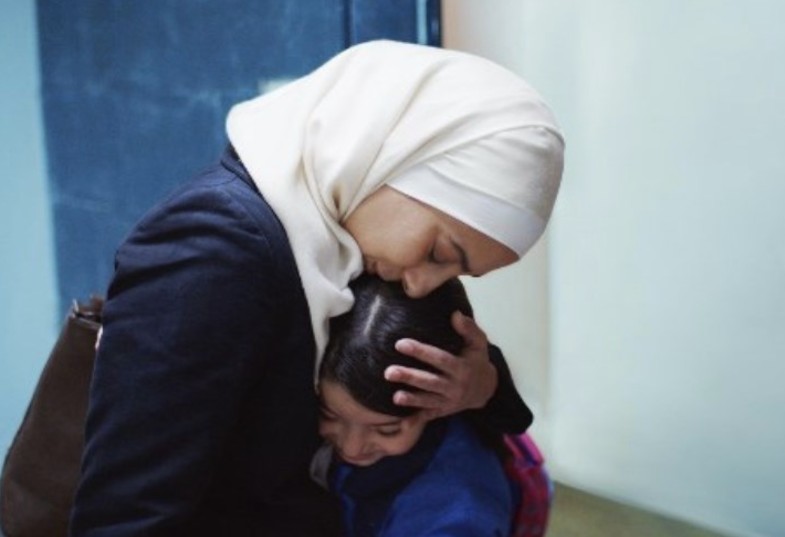

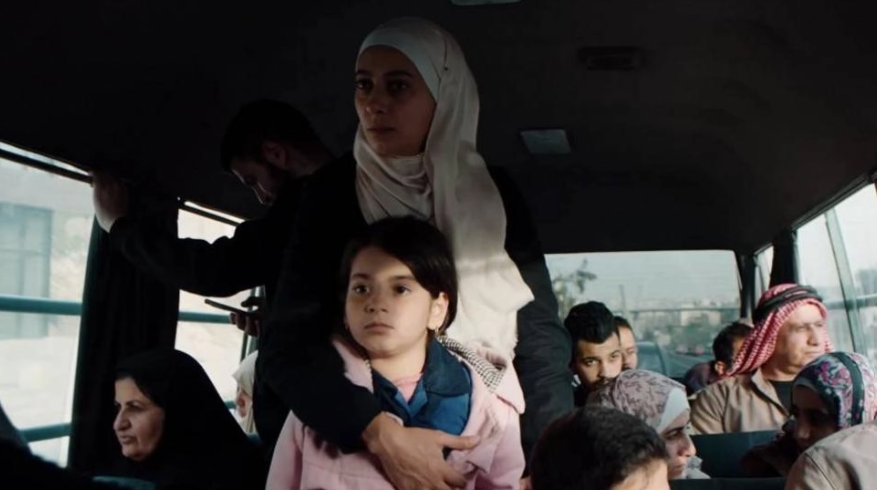
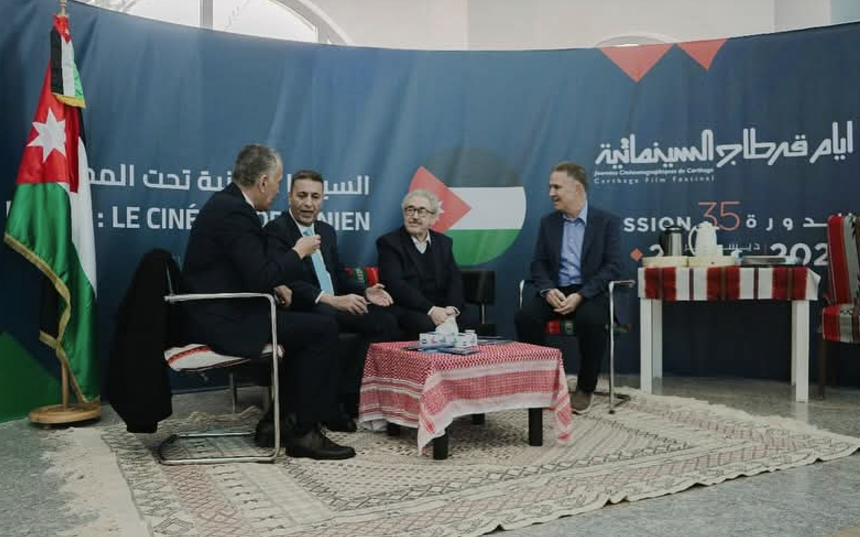
COMMENTS